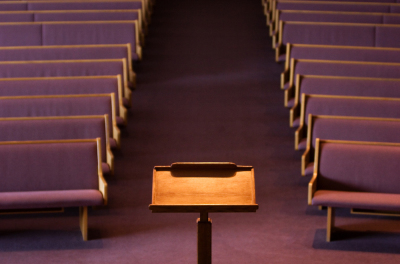10 reasons pastor search committees are struggling more than ever

The pandemic is not the reason pastor search committees are struggling, but it did expose and exacerbate the problems. In fact, we at Church Answers see more pastor search committees struggling to find a pastor than at any time we can recall.
We understand that many of you may search for pastors by other means than a search committee. You could have an appointment process, or you could have another group, such as elders, seeking a pastor. These ten reasons are often present regardless of the polity or the process.
1. The search committee does its search like it’s 1980.
They gather resumes from several sources. If the church is part of a denomination, it seeks resumes from that body. The members of the search committee painstakingly go through every single resume even though few of them represent candidates who would be a fit. If they contact a candidate, they usually don’t follow up. They keep the candidate hanging and wondering. It is a process headed for failure.
2. They take too long to find a pastor.
They usually meet weekly or even less frequently. They assign search committee members a certain number of resumes. They deal with multiple candidates at one time which adds confusion and delays. The process to find a leading candidate can take six months or more. If that candidate does not work out, the process starts over. It’s painstaking. It’s slow. It’s frustrating.
3. The church is unwilling to use a search firm.
They are many misperceptions about search firms. No, they do not select the pastor for you. They give you several names for the church to choose from. They understand this world. Search committees do not. And please don’t use the modest cost of a search firm to deter you. It becomes much costlier if you don’t find the right candidate.
4. Many search committees are looking for pastors with the same profiles.
If you are a pastor looking to move to a church, you are in a good place if you are between the ages of 35 and 49, you have at least 15 years of experience, and you have a perfect family. Other candidates need not apply.
5. Some search committees seek to over-correct the perceived problems of the previous pastor.
If the previous pastor was “too evangelistic” and did not meet perceived pastoral care needs, the committee might seek a new pastor who spends 99% of the time meeting pastoral needs of the members. Of course, the church will decline since it has no external outreach leadership.
6. Some search committees seek a clone of the previous pastor.
This path is less common than it used to be. It might take place if the previous pastor had long tenure, is the founding pastor, or if the pastor died. By the way, if a prospective pastor tries to denigrate the previous pastor, whether that pastor is perceived to be a hero or a mistake, move on to another candidate quickly. The prospective pastor has demonstrated unhealthy insecurity.
7. The church thinks the next pastor will be a silver bullet.
The most common perceived expectation of a new pastor is that the church will become younger (one of the reasons every church wants a pastor between the ages of 35 and 49). The silver bullet pastor is hard to find. No, the silver bullet pastor is impossible to find.
8. The church has unreasonable expectations for the new pastor.
In addition to the silver bullet syndrome, some search committees have expectations for a pastor that are somewhere between sainthood and sinless. I have collected search committee profiles of prospective pastors over the years. That is a topic for another article on another day.
9. The year 2019 has become nostalgic for churches in general and for pastor search committees in particular.
It really has not been that long since 2019. But many churches look at the last pre-pandemic year with longing and nostalgia. Most churches don’t have a realistic perspective of how 2019 really was, but they long to return to that year. Search committees thus seek a pastor who can restore the attendance, programming, and the number of guests back to pre-pandemic levels.
10. Many churches don’t realize that they cannot afford a full-time pastor.
I recently met with a pastor search committee that had not been able to move forward for over a year. I asked about the compensation package for the pastor. The amount they gave me was below the poverty line for a family of four. Additionally, they offered no benefits. When I responded that the amount was absurdly low, one search committee member said they were counting on his wife working. Churches must be realistic about this issue. It might be time to look for a bi-vocational or co-vocational pastor.
Though we don’t have quantitative data, we anecdotally see churches taking much longer to find a pastor. These reasons at least partially explain the conundrum.
Originally published at Chruch Answers.
Thom S. Rainer is the founder and CEO of Church Answers, an online community and resource for church leaders. Prior to founding Church Answers, Rainer served as president and CEO of LifeWay Christian Resources. Before coming to LifeWay, he served at The Southern Baptist Theological Seminary for twelve years where he was the founding dean of the Billy Graham School of Missions and Evangelism. He is a 1977 graduate of the University of Alabama and earned his Master of Divinity and Ph.D. degrees from The Southern Baptist Theological Seminary.




















